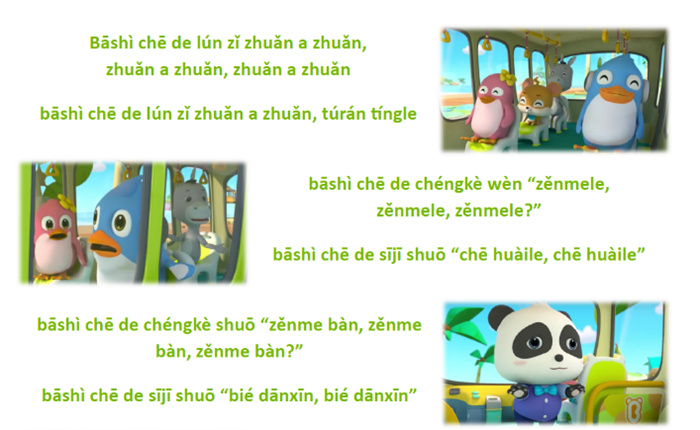Songs are a great way to learn a new language as well as mandarin Chinese, because through music you can learn words and phrases from the lyrics. What is particularly great about songs is that they make the content stick in your head through the melody. You can remember a surprising amount of detail if it goes with a catchy tune.
I must admit that I wasn’t one of the kids that liked to sing at school and for a long time avoided using songs in my teaching. But I can’t argue with the fact that I still remember all the words of the songs I was taught in German as an 11-year-old and, after seeing how powerfully they work in the classroom, I have had to re-evaluate my opinion.
There is so much that you can unpack from any given song when learning yourself or teaching others and so many activities that can come from this style of learning. In this article, I’m going to show examples of what you can do with Chinese songs (I do not own the YouTube video or claim copyright on the activities that are based on it).
Chinese Song Lyrics
It goes without saying that you can study a Chinese song’s lyrics. In addition to helping you learn new vocabulary, it’s a good idea to isolate phrases which could be used in other contexts. This is a really good way to build up a repertoire of phrases that one can say with grammatical accuracy because the tune of the song makes it less likely that you will drop words out, add words, or get them in the wrong order.

Some tips: Play with the speed settings in Youtube. You can slow the video down so that you can understand and follow the song better.

You can practice the Chinese vocabulary and phrases with online tools like Quizlet. You can also print them out and turn them into fridge magnets that you can practice pairing up on the fridge. There are many other things you can surely do – just use your imagination!

Further Related Vocabulary
The song you use to learn can be used as a springboard from which you can go down one or more paths to learn further language. For example, when I taught the song “The Wheels on the Bus” in Chinese, I had a five-year-old boy who was very keen to learn the names of the parts of the bus. So, for the next lesson I put together activities which taught and practiced these. The song made the student go further into learning new vocabulary, which was learned within the context and visuals of the original song, making the memory links stronger.

Differentiation (for teachers)
This is one of the current buzzwords in education. In basic terms, it is about teachers responding to individual students’ learning styles, interests, and readiness while planning the lesson. Running with the student’s desire to learn the parts of the bus is an example of this. If you are taking the students’ age, ability, and interests into account while planning the lesson, and possibly adding extra activities for the more able students, you will find that they engage more fully.
Follow-up Activities
The possibilities for more activities are endless and depend on the age and stage of the learner(s). You can do craft activities, card games, board games, running games, video making, Pictionary, etc. as the means to make learning more interesting and fun.

Retell
Retelling the story or content of the song in your own words is a good way to improve your speaking, even if it is still not perfect right away. This is a good way to learn sentence connectors which make a story or conversation flow well.

Choosing the Right Songs
From personal experience, I would say that in a classroom setting students from 5 to 11 years old enjoy doing kids’ songs. Ages 12 – 15 do not appreciate kids’ songs but are usually keen to study Disney songs or simple pop songs. For adults who don’t mind kids’ songs, these are still extremely useful because they often deal with everyday real-life situation that kids need to learn about – thus they contain phrases and vocabulary which are useful for adult language learners’ everyday lives.
To finish, just as a little note from a self-admitted introvert: if you have one of those quiet kids who likes to keep to themselves and doesn’t want to join in singing, you don’t necessarily have to make them join in the singing – trust me when I say that they will be processing it internally and will learn just as much as the others. If they’re anything like I was, they’ll love you for respecting their feelings. If you force them, they might resent you for doing that because it will make them feel deeply uncomfortable.


This Post Has 0 Comments